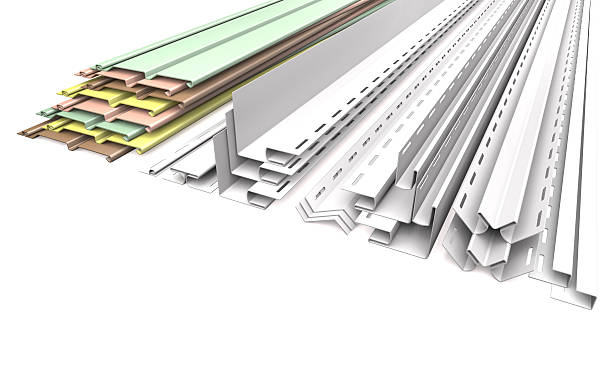Commercial hydroponic systems are becoming an increasingly popular choice for small- and medium-sized businesses. Not only do these systems provide a high level of crop production, but they’re also relatively easy to set up and operate. If you’re thinking about investing in a commercial hydroponic system, be sure to check out our selection here at Hydroponic Supply. We have systems from leading manufacturers like Nutrient Film Technique and Advanced Nutrients available for purchase. Whether you’re a farmer looking to expand your production levels or a business owner looking for a more efficient way to run your operation, a commercial hydroponic system is an excellent option.
Table of Contents
Commercial hydroponic systems are becoming an increasingly popular choice for small- and medium-sized businesses. Not only do these systems provide a high level of crop production, but they’re also relatively easy to set up and operate. If you’re thinking about investing in a commercial hydroponic system, be sure to check out our selection here at Hydroponic Supply. We have systems from leading manufacturers like Nutrient Film Technique and Advanced Nutrients available for purchase. Whether you’re a farmer looking to expand your production levels or a business owner looking for a more efficient way to run your operation, a commercial hydroponic system is an excellent option.
What is hydroponic gardening?
Hydroponic gardening is a type of gardening that relies on hydroponics, which is a method of growing plants in water. Plants are grown in soilless media or shelf label strips which is a mixture of soil and air. This method allows the gardener to control the amount of light and water that the plant receives, which helps to reduce the number of pests and problems that can occur with traditional gardening. Commercial hydroponic systems are available for sale, and they can be used to grow a wide variety of plants.
Types of hydroponic systems
There are many types of hydroponic systems available on the market today, each with its own benefits. Here we will look at three representative types of systems: the recirculating system, the ebb and flow system, and the pyramid system.
The recirculating system is probably the most common type used in commercial agriculture. It works by filling a reservoir on top of the plant with water, then spraying it over the plants via a misting nozzle. The water circulates around the plants thanks to a pump, and is recirculated several times before it is released back into the reservoir. This system is relatively simple to set up and maintain, and can be adapted to a wide range of growing conditions.
The ebb and flow system is similar to the recirculating system in that it uses water to circulation around plants, but it differs in one important way: instead of spraying water droplets over the plants, this type uses waves moving through channels that run beneath the plants. This design allows for a high degree of precision when watering plants, as any excess water can be drained away quickly without runoff or flooding. Ebb and flow systems are popular among cannabis growers due to their ability to provide consistent water levels throughout the grow space.
Finally, there is the pyramid system. This type of hydroponic system employs a series of tiers or “pyramids” filled with soil or mediums that support plant growth vertically rather than horizontally like traditional pot plants. The plants are grown in pots that sit on top of the soil at the top of the pyramid, and water is circulated up and down the pyramid through tubes connected to a reservoir at the base. This system is popular for larger plants as it allows for more Plants to be grown in a given space than other types of systems.
Commercial hydroponic systems
Commercial hydroponic systems are perfect for those who want to produce their own food without the need for soil. These systems use artificial media and nutrients to help plants grow, and they can be purchased pre-made or you can build your own. If you’re looking for a cost effective way to grow your own vegetables or fruits, a commercial hydroponic system is the perfect option.
There are several types of commercial hydroponic systems on the market, each with its own benefits and drawbacks. Below we’ll take a look at four of the most popular types of commercial hydroponic systems:
1. Soilless Hydroponic Systems
Soilless hydroponics systems are by far the most popular type of commercial hydroponic system, and they account for nearly 90% of all sales. Soilless systems use synthetic materials like rock dust, vermiculite, or perlite as part of their growing mediums. This helps the plants obtain all the nutrients they need without having to deal with soil’s heavy loads of fertilizer runoff and weed growth.
One downside to soilless hydroponic systems is that they require more maintenance than other types of commercial hydroponic systems. Every few weeks, you’ll need to add new growth media or replace aging components like filters or pumps. Additionally, because these systems don’t use soil, there’s a greater risk that your plants will get root fungus or other diseases if they aren’t kept properly moist
Benefits of using commercial hydroponic systems
Hydroponic systems use water and plants in an enclosed environment to produce food. They are popular because they require little maintenance, can grow large crops quickly, and produce high yields. Commercial hydroponic systems are often more advanced than home-grown systems and can be customized to meet the specific needs of a farm. Here are some benefits of using commercial hydroponic systems:
1. They require less land than traditional farming methods.
2. They are more efficient at producing food.
3. They are customizable to meet the specific needs of a farm.
4. They can grow large crops quickly and produce high yields.
Installation of commercial hydroponic systems
Commercial hydroponic systems for sale come in a variety of sizes and configurations, from very small units that can be installed in a kitchen or office to sprawling greenhouses that can cover several acres. The systems range in price from around $6,000 to more than $1 million.
The basic components of a commercial hydroponic system are a water reservoir (to hold water used for irrigation), grow beds (where crops are grown), pumps and ducting to move water and nutrients to the plants, and ventilation systems to control humidity and temperature. Many commercial hydroponic systems also include built-in sensors to track crop growth, water usage, and other factors.
Commercial hydroponic systems are widely used in the food industry. They are particularly popular for growing leafy vegetables such as lettuce and arugula, due to their low cultivation requirements (compared with crops such as tomatoes or potatoes) and high yields. Commercial hydroponic systems have also been used to produce fruits and vegetables such as strawberries, grapefruit, mangoes, avocados, and tomatoes indoors using less energy than is required by traditional farming methods.
Maintenance and troubleshooting of commercial hydroponic systems
Hydroponic gardening is a growing industry that has seen a lot of growth in recent years. Commercial hydroponic systems are designed to provide plants with the correct levels of water, nutrients, and air. Maintenance and troubleshooting of commercial hydroponic systems can be complex, but with the help of a knowledgeable technician, these systems can often last for many years without issue.
It is important to keep commercial hydroponic systems clean and free of debris. This can be done by using a high-pressure water jet or an irrigation system that flushes debris away from the plants. It is also important to check the water levels and adjust them as needed to ensure that the plants receive the correct amount of moisture.
Commercial hydroponic systems require regular maintenance in order to function properly. This includes checking the pH level, checking for signs of nutrient deficiencies, and adjusting the water levels as necessary. If any problems arise during maintenance, it is important to contact a technician so that they can take care of them quickly and efficiently.
Conclusion
Commercial hydroponic systems are a great option for those interested in gardening but don’t have the space or time to maintain a large garden. These systems provide complete control over the environment and nutrients your plants receive, making them an ideal choice for anyone looking to grow food indoors. If you’re interested in purchasing a commercial hydroponic system, be sure to read our reviews first to get a good idea of what is available on the market.


More Stories
How to Sell Gold for the Best Price: A Comprehensive Guide
Luxury Fake Watches: Are They Worth the Hype? Tips, Tricks, and Pitfalls
The Ultimate Guide to Home Inspectors: What You Need to Know